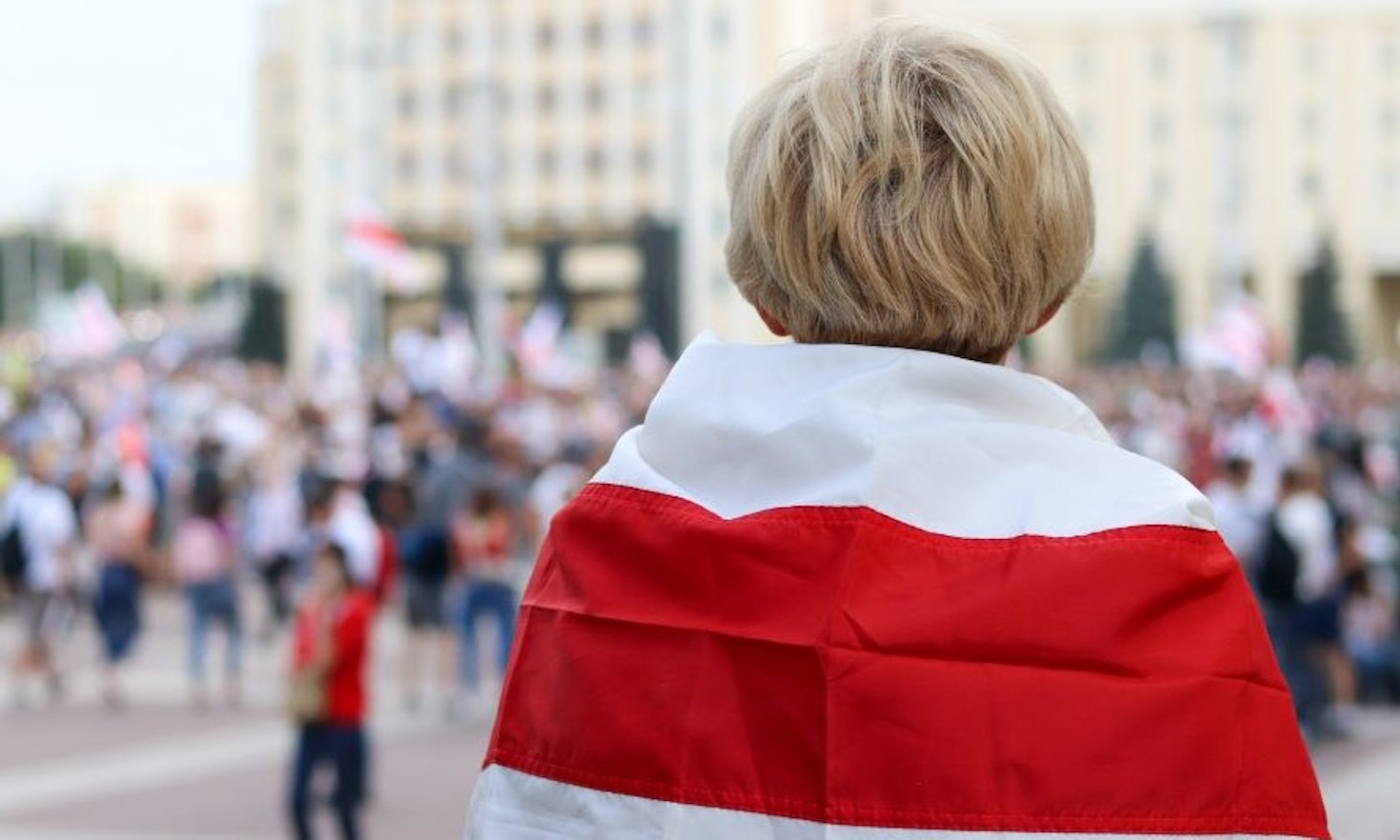
When war meets a natural disaster – the earthquake in Syria
 Martina Gianola
Martina Gianola
The Ferragosto week in Italy was very calm as usual, in contrast Belarus was full of tension brought about by the presidential election on 9 August 2020. This year I visited my family in Belarus the week after the election and the things I saw there will always remain in my heart. Upon my return my colleagues from Eurac Research asked me about the current political situation in Belarus, and as such I’ve decided to share my experience with you.
Unfortunately, democracy and the respect of basic human rights are still new terms in Belarus, a small independent country situated between Poland, Lithuania, Latvia, Ukraine and Russia.
Alexander Lukashenko who’s been in power for 26 years has never been what you would call democratic leader. The secret police – the KGB are still in force and, political murders and the death penalty are still in use throughout the country. 2020 so far has seen a long economic stagnation, the constant national warranty devaluation and the complete ignoration of the COVID-19 pandemic by the government which have all led to massive anger on the part of its people.
In spring 2020, while many European countries were introducing lockdowns, Lukashenko had already forced the Belarusian people to continue with their normal lives. While the citizens were raising money for the health institutions, offering face masks and free meals for medical staff, the Belarusian government was organising the top football and ice hockey leagues and even a huge military parade in Minsk – despite the recommendation of the World Health Organization.
As usual, before any election, Lukashenko had eliminated the strongest competitors. Then, the wife of an imprisoned candidate, Svetlana Tikhanowskaja decided to run and the people fell in love with her simple goal of releasing the country’s political prisoners and running a fair election. Lukashenko had never considered her strong enough to compete with him and this was his big error.
The election day in 2020 was very special: the OSCE international election observers were not even invited, and a huge number of citizens had to wait for hours in queues just to vote. This resulted in some not being able to vote before the closure of polling stations. Something completely new in the history of Belarus.
am very proud of the unusually politically active young Belarusians, I saw a new generation of open-minded people ready for important changes. Apparently however, Lukashenko had not considered the role of globalisation and digitalisation for the future development of Belarus and indeed, it was the internet that became an important alternative source of information for Belarusian society, where all media is state-owned.
Immediately after the proclamation of Lukashenko’s victory, despite the absence of the Internet access and the restriction of mass gatherings, many thousands of peaceful people took to the streets in protest of the falsified election results. According to the United Nations report, 6,700 innocent people were arrested, 450 people were beaten and tortured, 6 people died and 6 people are still missing. This unexpected violence and brutality towards the peaceful populace has given rise to yet another wave of unstoppable protests and solidarity actions. Again, something completely new for our country.
According to independent surveys, Svetlana Tikhanowskaja won the election with about 70% of the votes. She is now continuing her fight for Belarus’s freedom from Lithuania. In Minsk, a Coordination Council was established for a peaceful dialogue between Lukashenko and the people.
The Coordination Council, the street protesters and the workers of many Belarusian plants are demanding the dismission of Lukashenko, the release of Belarus’s unlawfully detained political prisoners and a new fair election. Meanwhile almost the whole Coordination Council Board, including Maria Kalesnikava was detained or forced to leave the country during the weeks after the election. Now the Coordination Council includes almost 12000 people and only one free Board member in Belarus Nobel prize winner Svetlana Alexievich.
The pressure on the strike committees at the state enterprises continues, where techniques including intimidation, arrests and forced emigration are being imposed. The civil society continues to report human rights violations and provides legal, humanitarian and financial aid to victims of the repression. Many prominent Belarusians, including a brilliant cardiologist, the head of the theatre and the ambassador of Belarus were recently fired for supporting the protests. Many international journalists including those representing the BBC lost their accreditation in Belarus and some of them were even detained, a stark contrast to the many Russian media workers who are currently involved in state propaganda in Belarus.
The national currency keeps devaluating, banks are wrapping up their loan programs, local businesses including the IT industry are considering the mass relocation of their headquarters to other countries. If Lukashenko continues to abuse human rights in Belarus, an emigration wave of skilled professionals will follow in order to escape the regime.
Tension between the Belarussian government and the EU is growing. The EU did not recognise the results of Belarusian election and proclaimed Lukashenko persona non grata on its territory and sanctions are on their way. While Lithuania and Poland have opened their doors for the refugees of Belarus’s political repressions, the Russian government seems to support Lukashenko in his crimes.
I feel sorry that Belarus, such a wonderful country with its kind, open and genuine people, has become famous for its fight against the dictatorship. But at the same time, I am very proud of the unstoppable courageness of the Belarusian men, women, students and workers who every day continue to protest.
As research from Harvard university shows, a peaceful fight for democracy is more successful than a violent one, I am sure that the Belarusians are on the right course towards their freedom.

This content is licensed under a Creative Commons Attribution 4.0 International license.